Teachers in preschool face the challenge of making daily routines understandable for little kids who can't yet read. Kids do best with a consistent schedule, yet for them, time is a tricky concept. By using pictures to show each activity during the day, preschoolers can start to anticipate what comes next, helping them feel more secure and engaged. But finding the right visuals that are both clear and engaging can be tough for teachers.
We whip up a colorful, easy-to-follow daily schedule for little learners. It's packed with appealing icons and simple time slots - helps kids know what’s next without having to ask. Tailoring for preschool, activities include playful learning, snack, and nap times. Keeps the day running smoothly and gives a sense of independence to the kiddos.
 Preschool Visual Daily Schedule
Preschool Visual Daily Schedule

 Printable Preschool Daily Schedule Cards
Printable Preschool Daily Schedule Cards

 Printable Preschool Daily Schedule Cards
Printable Preschool Daily Schedule Cards

 Printable Visual Schedule
Printable Visual Schedule

 Printable Classroom Schedule Cards
Printable Classroom Schedule Cards

 Printable Visual Schedule Cards
Printable Visual Schedule Cards

 Printable Daily Routine Cards For Toddlers
Printable Daily Routine Cards For Toddlers

 Printable Visual Routine Cards For Before And After School
Printable Visual Routine Cards For Before And After School

 Printable Home Picture Schedule
Printable Home Picture Schedule

 Printable Classroom Schedule Visual Timetable
Printable Classroom Schedule Visual Timetable

Optimal Learning Strategies for Visual Learners
There are multiple learning methods for visual learners apart from just using images or pictures, some of them include:
- Wall Hangings: Make use of visually appealing wall hangings with lessons incorporated in them
- Color Codes: Employ color codes in their learning to improve comprehension
- Whiteboard: This can be a productive tool to visually represent complex information.
- Cards: Flashcards can be used for both individual and group learning activities
- Charts and Graphics: Information can be showcased through easy-to-understand charts and graphs
- Symbols: Use easy-to-remember symbols in teaching visual learners
- Visual Schedules: Personalized schedules depicting day-to-day activities can help children understand sequential orders better
Understanding the Significance of Visual Learning
Visual learning, a widespread learning method, is useful because it facilities longer memory retention and easy comprehension due to the presentation of information in colors, shapes, and pictures. Students remember 65% of visual information as opposed to 20%-30% textual information. Therefore, the usage of visual tools facilitates improved academic performance.
Advantages of visual learning include:
- Better Communication: Visual tools can help improve teachers-students communication. These tools help students process information easier and faster. As explained by the Visual Teaching Alliances, the brain can process 90% of visual information 60,000 times faster than textual information.
- Enhanced Learning Motivation: Visual tools can stimulate learning interest and positively influence learning outcomes. It is important for parents too, to implement visual learning at home.
- Emotional Processing: Visual information is linked to emotional responses through a specific area in the brain. This helps kids express their emotions more easily and makes the information more memorable.
More printable images tagged with:
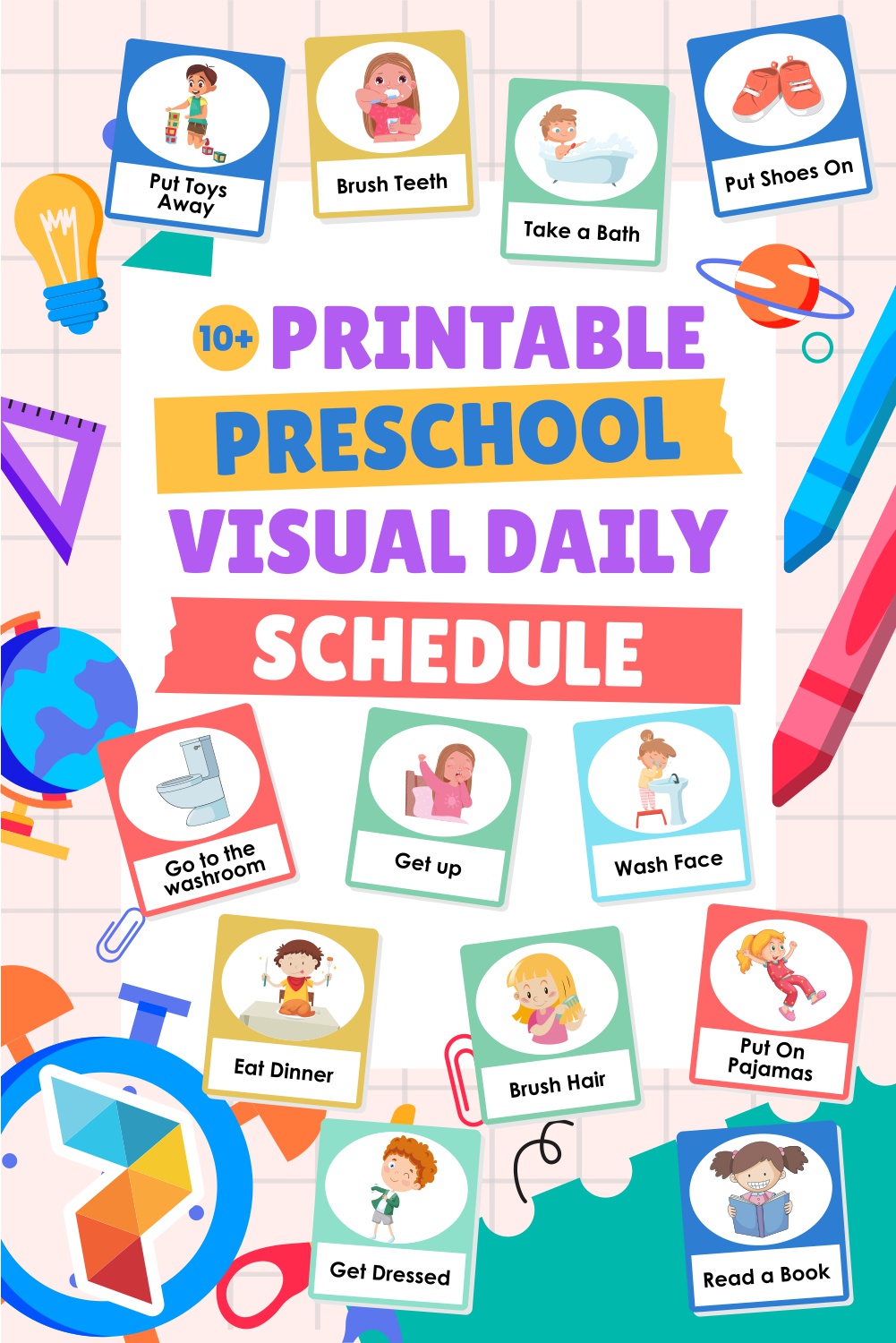
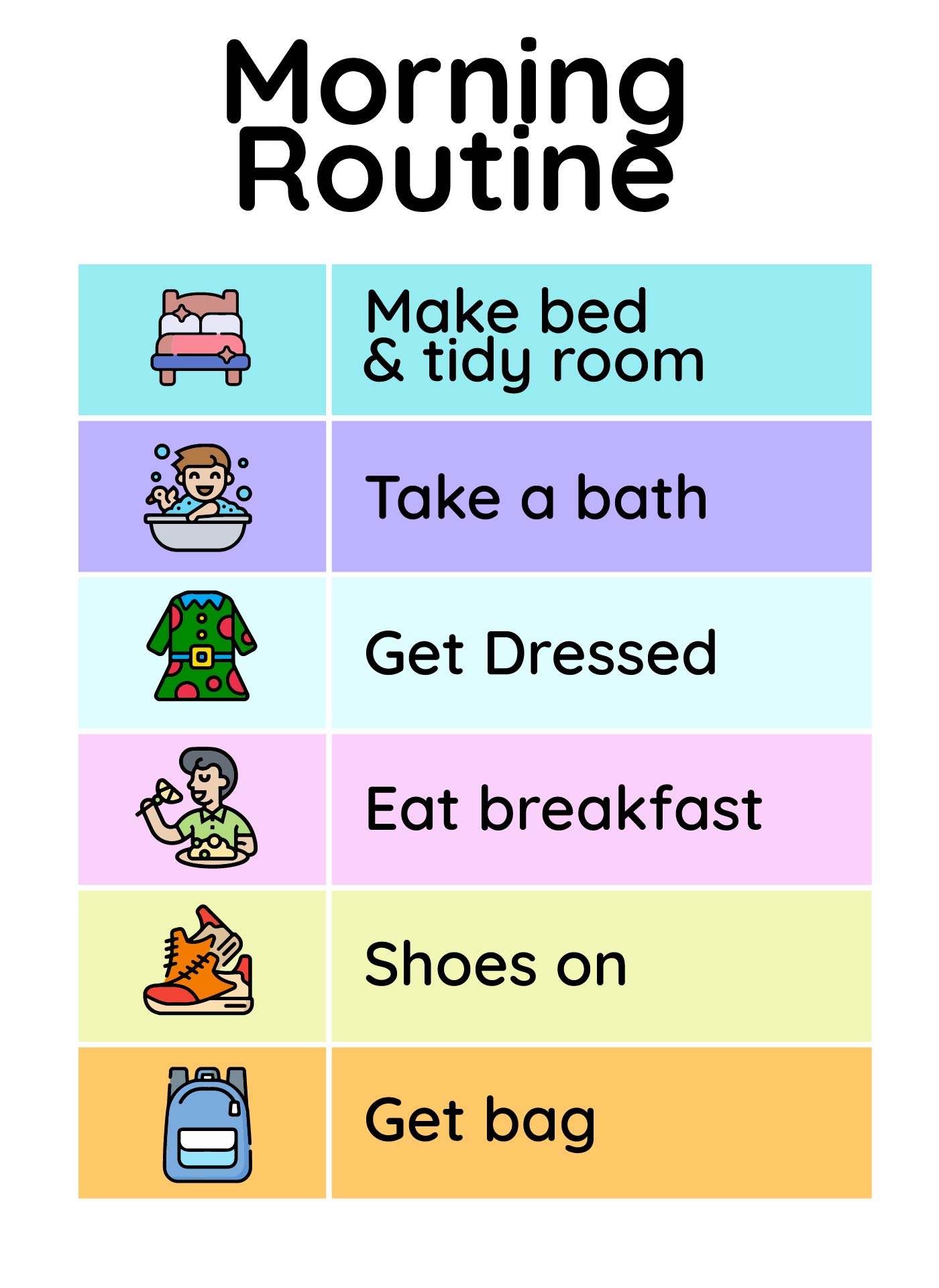
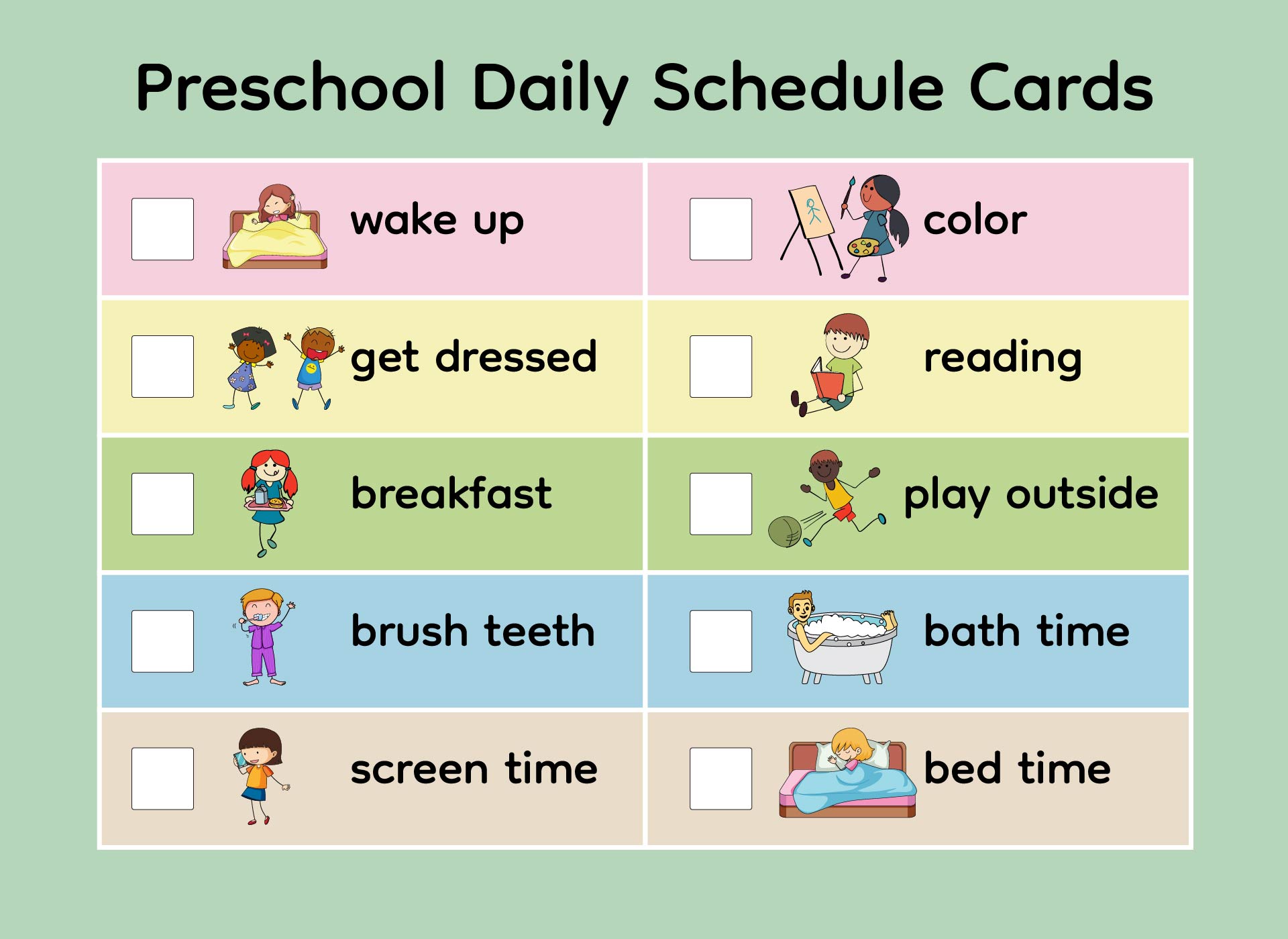
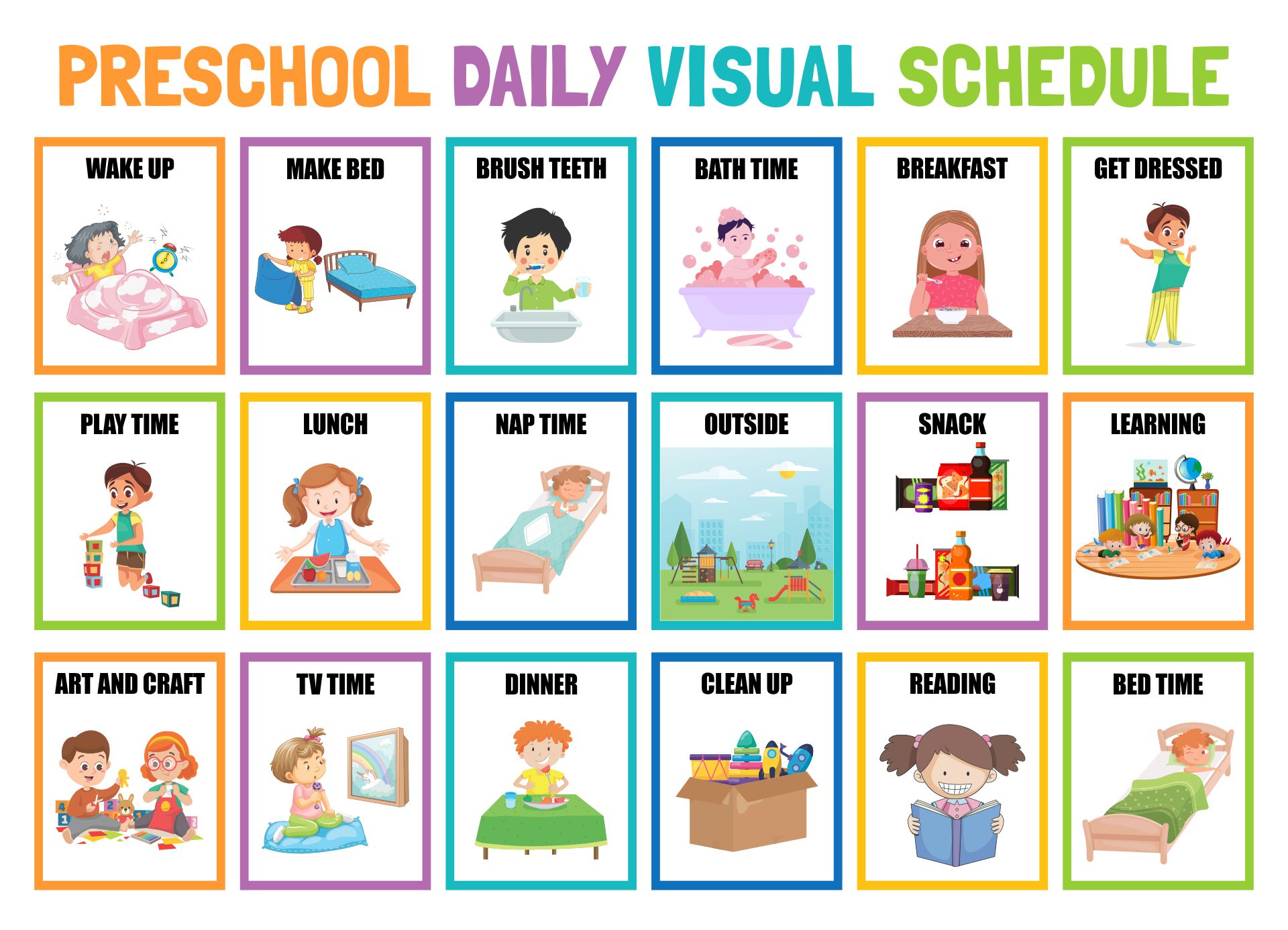
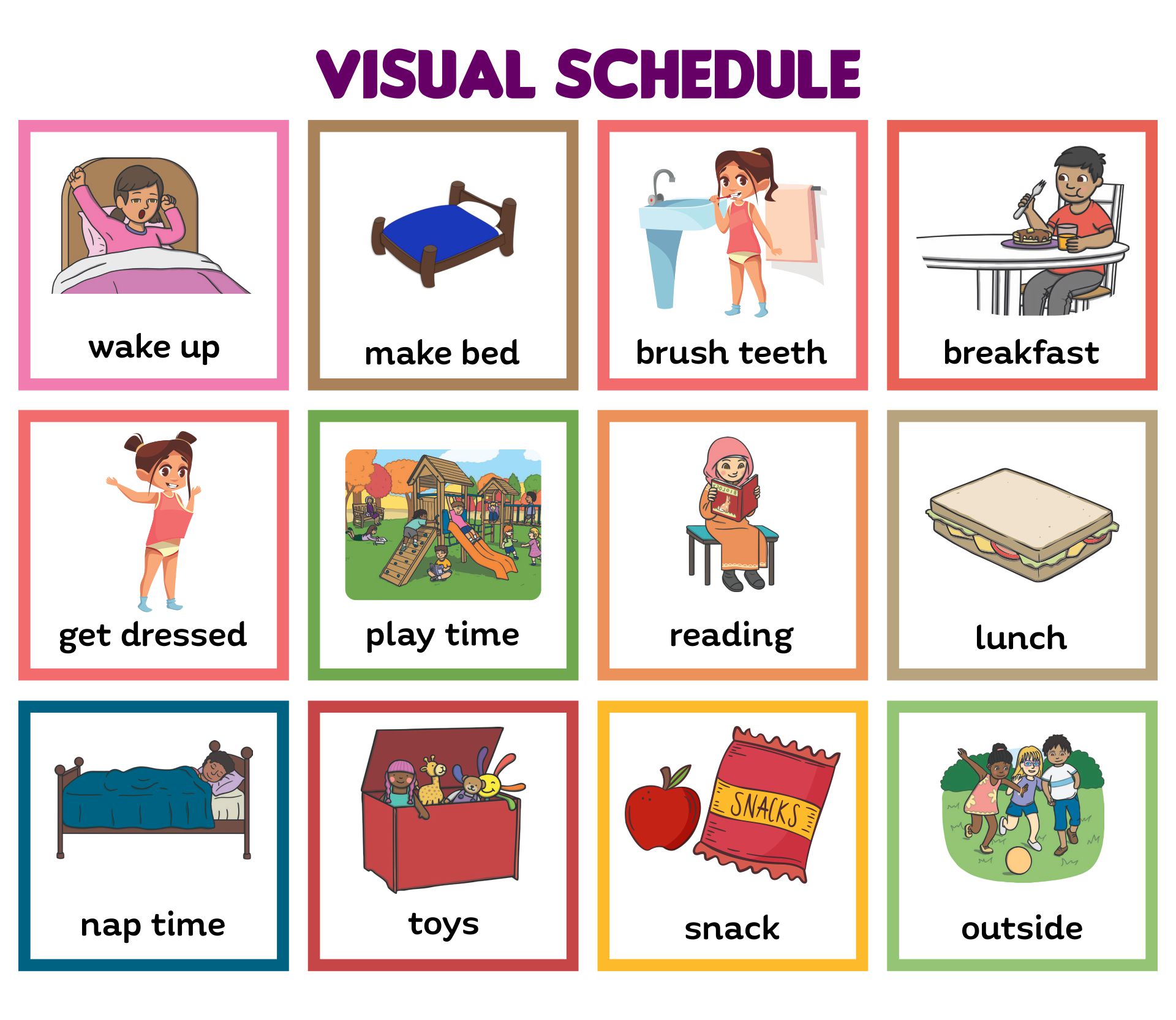
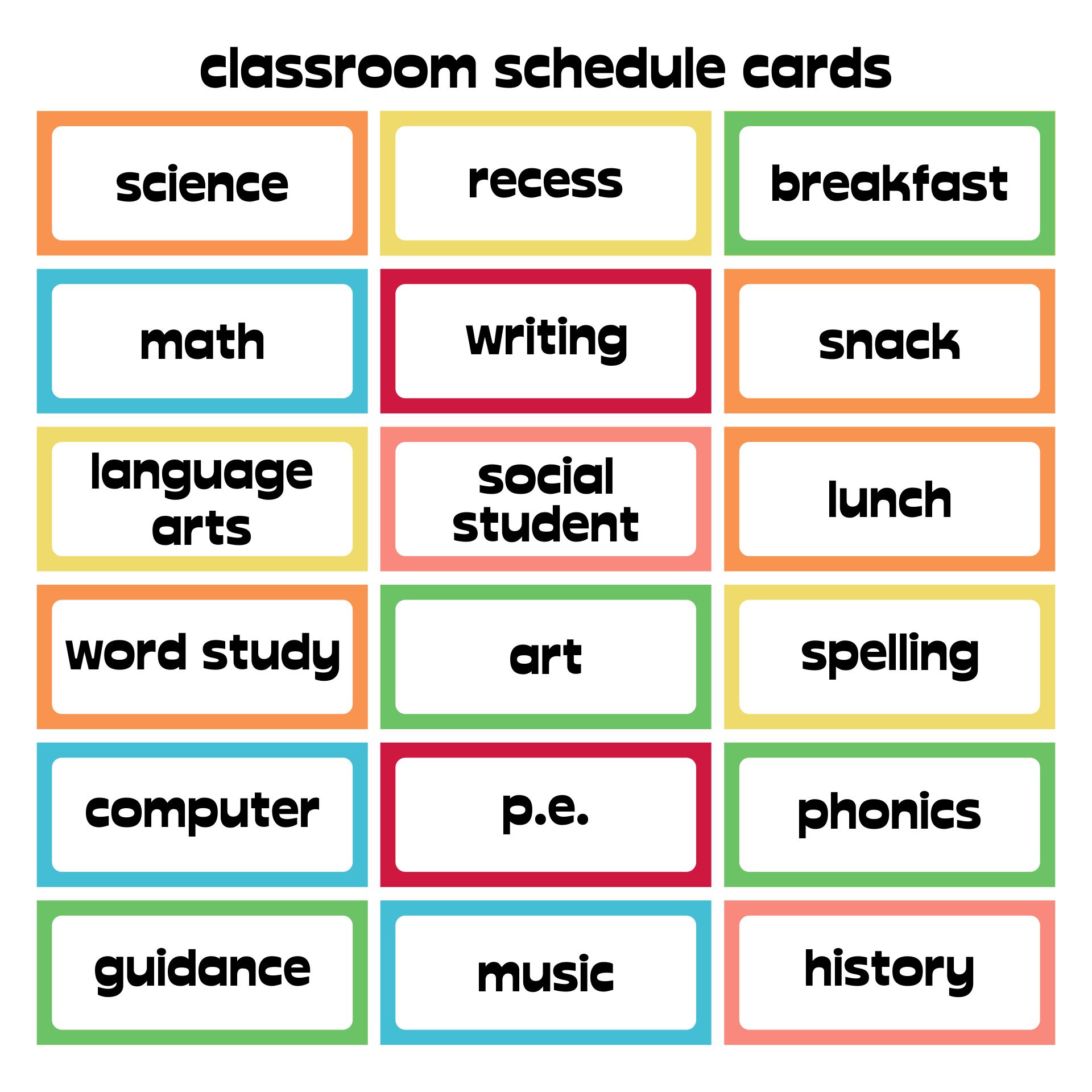
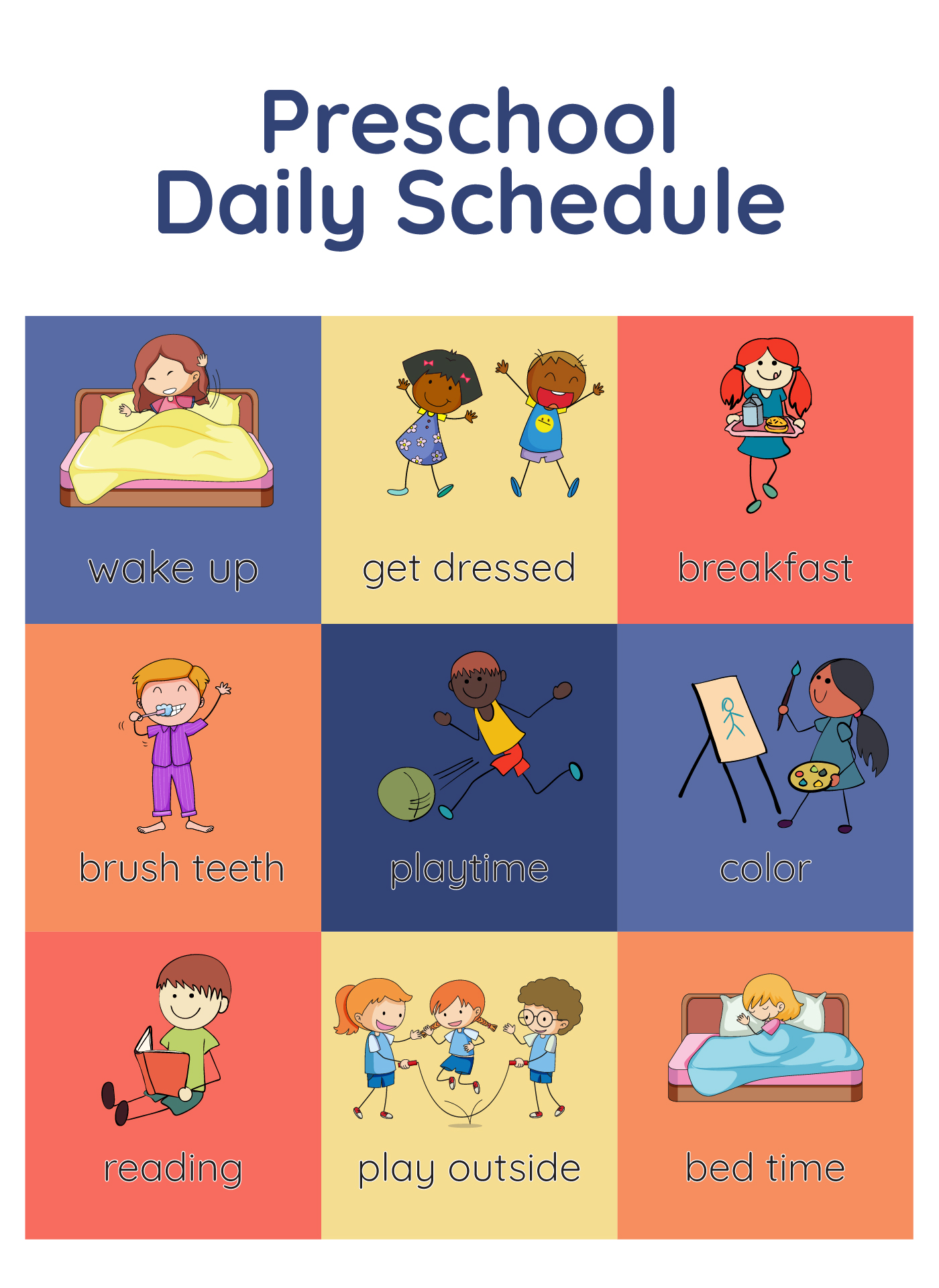
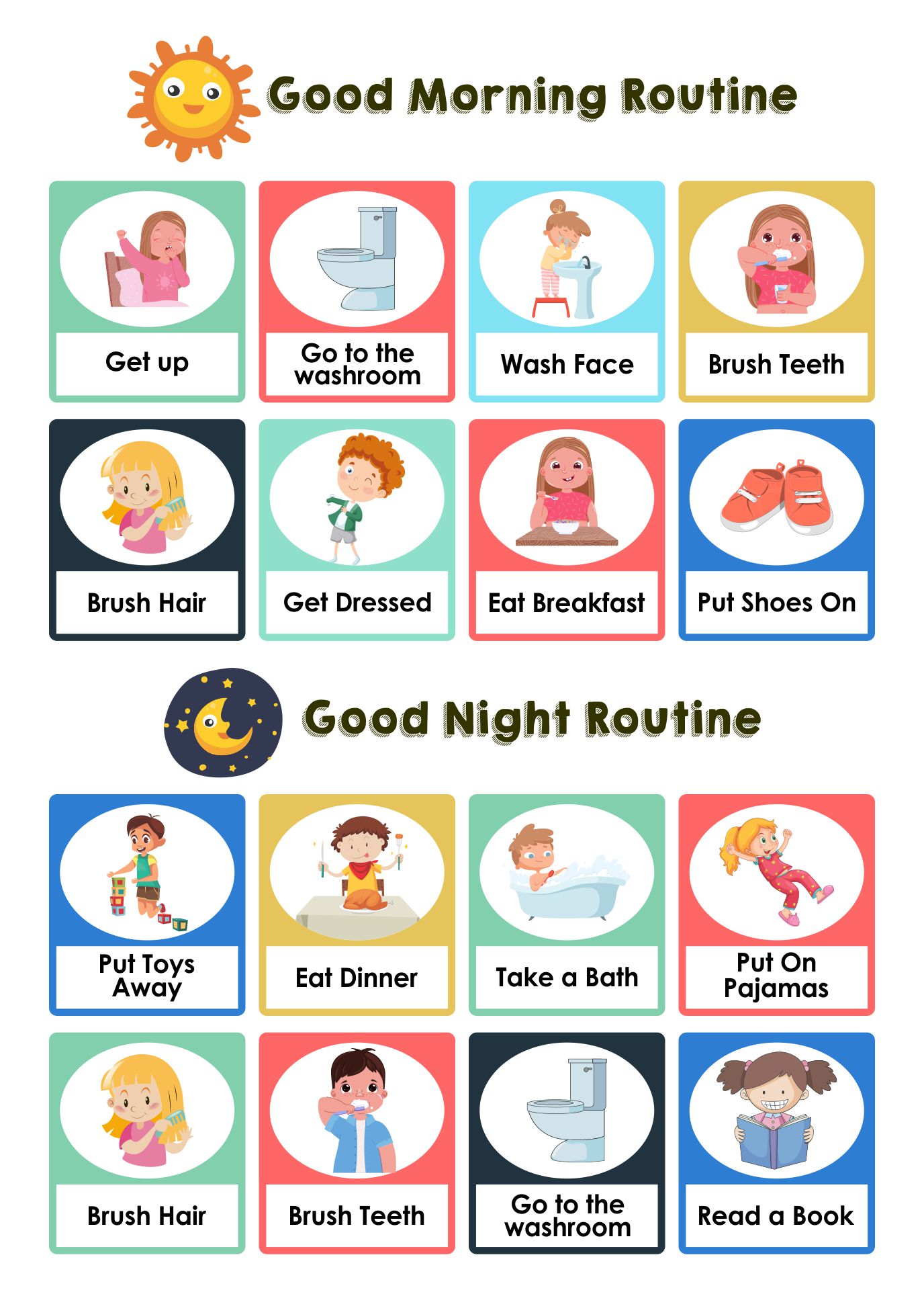
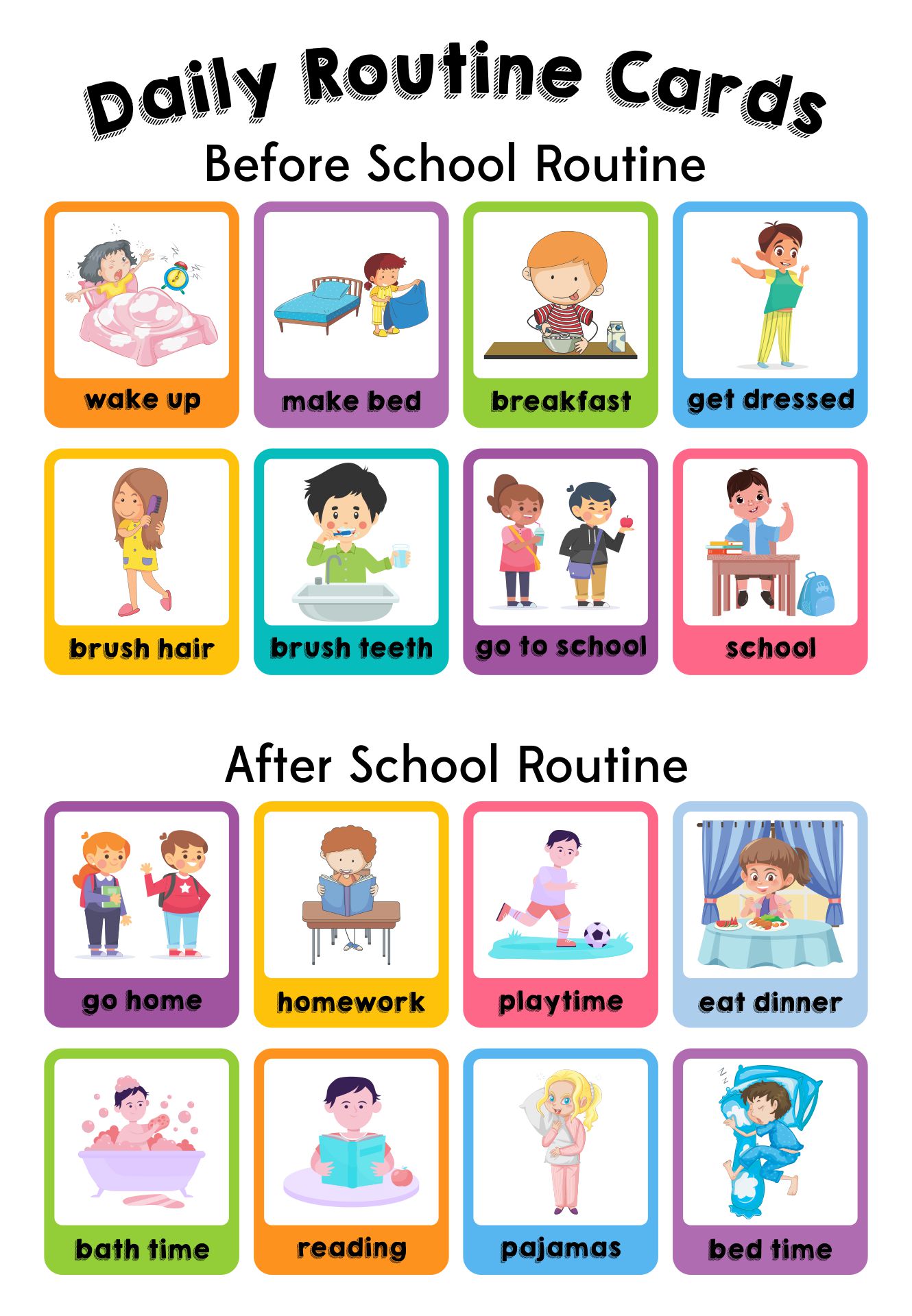
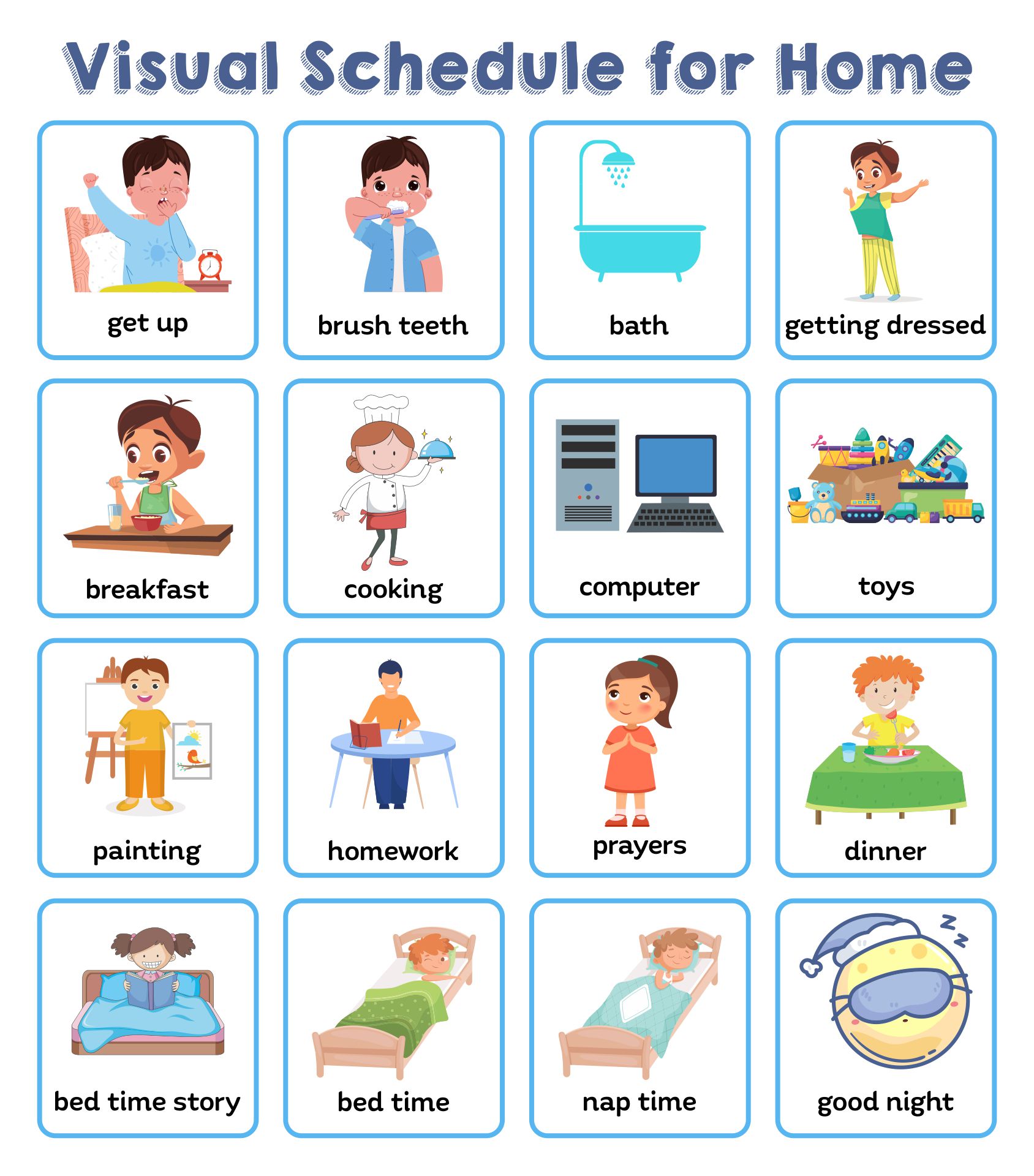
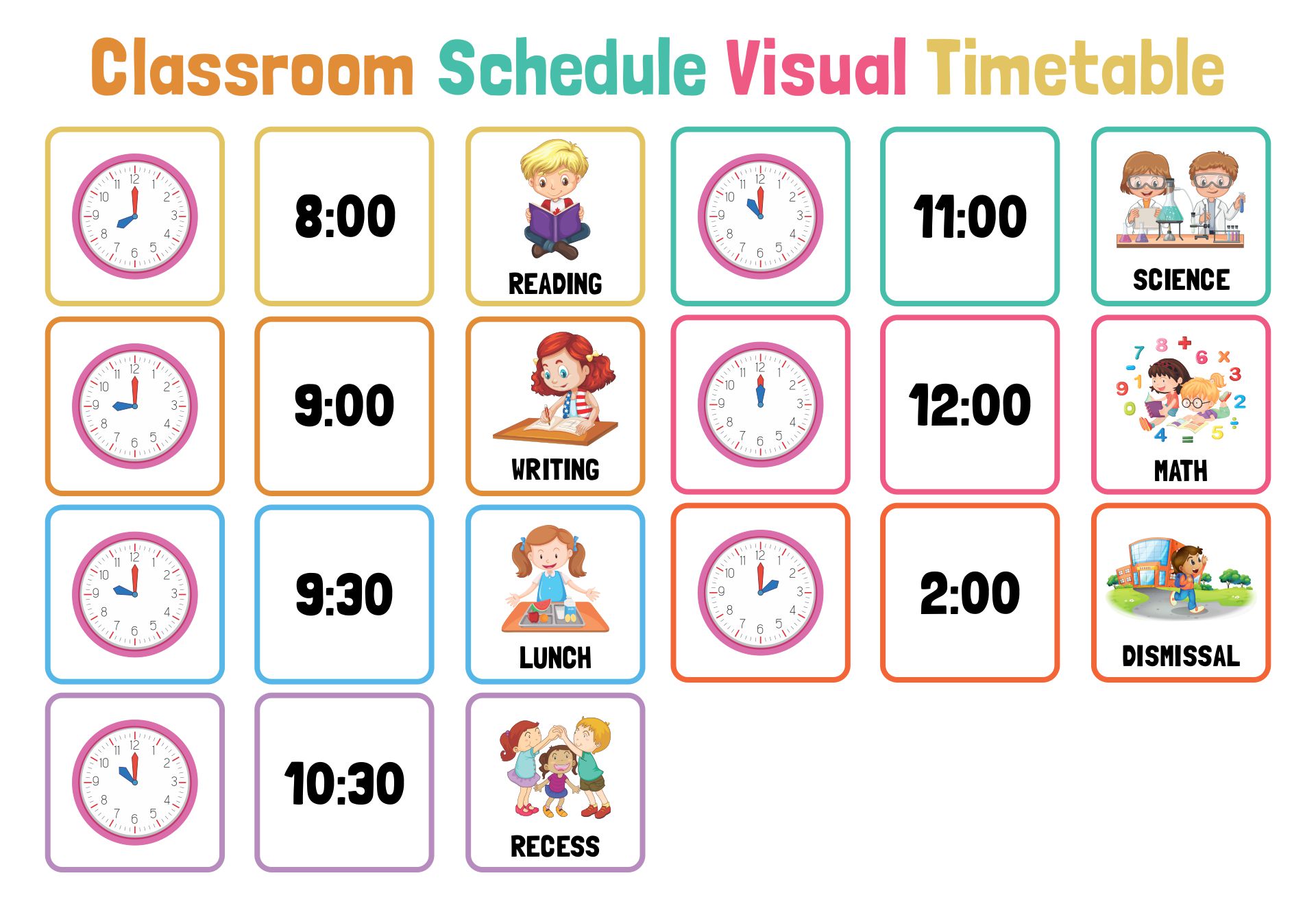
Have something to tell us?
Recent Comments
I love how the Printable Preschool Visual Daily Schedule helps to bring structure and routine into our day. It's a simple yet effective resource that helps promote learning and independence in a fun and engaging way!
Thank you for providing this useful printable resource. It's perfect for creating a structured and engaging daily routine for our little ones!
Thank you for providing this helpful and user-friendly daily schedule! It's such a great tool to keep my preschoolers organized and excited about their day. Love the simple yet vibrant design!